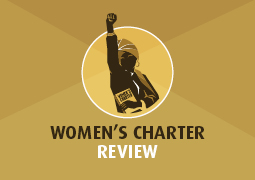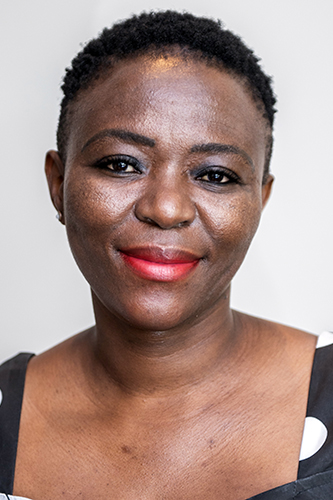
Parliament, Saturday, 30 May 2020 – Parliament held a successful virtual provincial review of the 1994 Women’s Charter for Effective Equality with two of the five districts of the Northern Cape, Frances Baard and John Taolo District Municipalities, yesterday. This is the second of four sessions to be held in the province aimed at taking stock of the progress made in the implementation of the articles of the 1994 Women’s Charter for Effective Equality and assess its impact since the advent of freedom and democracy. The first session in the province was at ZF Mangcawu District on Tuesday.
The session was led by the Deputy Chairperson of the National Council of Provinces (NCOP), Ms Sylvia Lucas, and in attendance were Members of Parliament; the Statistician-General, Mr Risenga Maluleke; Deputy Auditor-General, Ms Tsakani Maluleke; Chairperson of the Commission for Gender Equality, Ms Tamara Mathebula; Financial and Fiscal Commission; the Mayors of the two districts municipalities and various women’s civil society organisations.
At the Tuesday’s engagement session at the ZF Mangcawu District, the Deputy Minister of Women, Children and People with Disabilities, Ms Hlengiwe Mkhize was also in attendance.
Presenting at the session, Mr Maluleka said 40 per cent of the 1.3 million people living in the Northern Cape is considered poor. He also stated that 31.9 per cent of female-headed households in the province do not have an employed household member and the number of women aged 16 and above who are victims of assault is more than double the national average. Mr Maluleke added that the Northern Cape, with only 81.2 per cent functional literacy for females of 20 years and above, lags behind the national average of 84.5% of females.
Presenting on the state of gender transformation in the province, Ms Tamara Mathebula said, the commission’s observations is the lack of cooperation from municipal leadership regarding processes, resources and willingness to support gender mainstreaming in municipalities. She said women were minimally represented at decision making positions, there was non-compliance with the National Gender policy frameworks and uncoordinated Provincial Gender Machinery strategies. Ms Mathebula further stated that several interventions are required, such as the evaluation of the draft Gender Policy Framework for Local Government (2015 - 2020) against the set National, Regional and International instruments and the alignment with Sustainable Development Goals (SDGs), National Development Plan – Vision 2030 and to ensure that the Integrated development Planning for Local Government reflects gender transformation within municipalities.
Women from different walks of life took turns to raise issues of concern. One community representative, Ms Mathabo Mabika said women needed to be empowerment and fully equipped to face the new era of industrialisation. She said, “as women are going to be left behind if we are not included in intervention strategies aimed at capacitating us for the 4th Industrial Revolution that is currently taking place”. Another community representative called for women to have access to natural resources for agricultural purposes and land needs to be distributed to women. She further added that land is a commodity and would be used as a tool and a resource to free women from the shackles of economic inequality. Therefore the issue of land reform should be looked into in a gendered manner approach.
Representing Disabled People in South Africa, Ms Thandile Mfuno expressed concerns about the absence of statistics on women with disabilities “as disabled people we are far behind on everything compared to women at large”. She said education is a serious challenge in the province, as there is only one district with a school for children with disabilities and the school cannot cater to everyone. She further expressed concerns on the lack of statistics on the employment of women with disabilities, business opportunities as well as what she called escalating violence against women with disabilities.
A Nehawu representative at ZF Mngcawu District on Tuesday, 26 May, called for a closer look at the transformation in the workplace, which she said requires better monitoring. The representative reflected that some employers do not meet equity targets. She recommended the introduction of scorecards as a monitoring tool, because currently things look good on paper, but proper adherence to policy is lacking. She further called for the upskilling of women with disabilities, to improve their marketability.
The Deputy Chairperson of the NCOP, Ms Sylvia Lucas, told participants that the South African society remains a pluralist one with huge cultural diversities, as such, many challenges lie ahead. Furthermore, “in modern-day South Africa women are faced with a wide range of issues such as Gender-Based Violence, Poverty, high levels of unemployment and multiple other challenges”, she said
“Although great strides have been made since the advent of democracy in South Africa, gender discrimination still takes place in the workplace, and while there are notable exceptions, women are still poorly represented in top managerial and executive posts country-wide,” she added
Concluding her remarks, Ms Lucas said there is a lack of coherent policies, programmes, systems and procedures to promote gender-responsive policy, research planning, budgeting, monitoring, evaluation and auditing in South Africa. “We have brought you here to assist us to find lasting solutions. As we embark on this discussion today, may we remember, while various mechanisms exist to make gender responses mandatory, these mechanisms are often fragmented and lack coherence and broad-based political support,” she said. Parliament will be crisscrossing the country, district by district, gathering information on the specific challenges facing women in each district and locality. “We will also seek to find ways of turning theory into practice and to change gender relations for the better,” she added
The decision to undertake the nationwide Women’s Charter review process was taken during the Women’s Parliament held in 2019, and for women to be consultated countrywide. The first review sessions were held late last year in Gugulethu, Western Cape. The provincial review sessions will also cover the National Gender Machinery, legislative oversight, and all mechanism aimed at fighting violence against women and girls, which is worsening in South Africa.
Furthermore, the intensive consultation process will culminate in the adoption of improved policy and legislative oversight mechanisms, and interventions to remove all structural, institutional and cultural barriers to the realisation of gender equality in South Africa.
Parliament will continue with these virtual consultative sessions in the Northern Cape Province. The delegation is scheduled to cover all five districts in the province and will hold its third session – covering the Pixley Ka Seme District Municipality on Tuesday, 2 June 2020
ISSUED BY PARLIAMENT OF THE REPUBLIC OF SOUTH AFRICA
Enquiries: Moloto Mothapo

